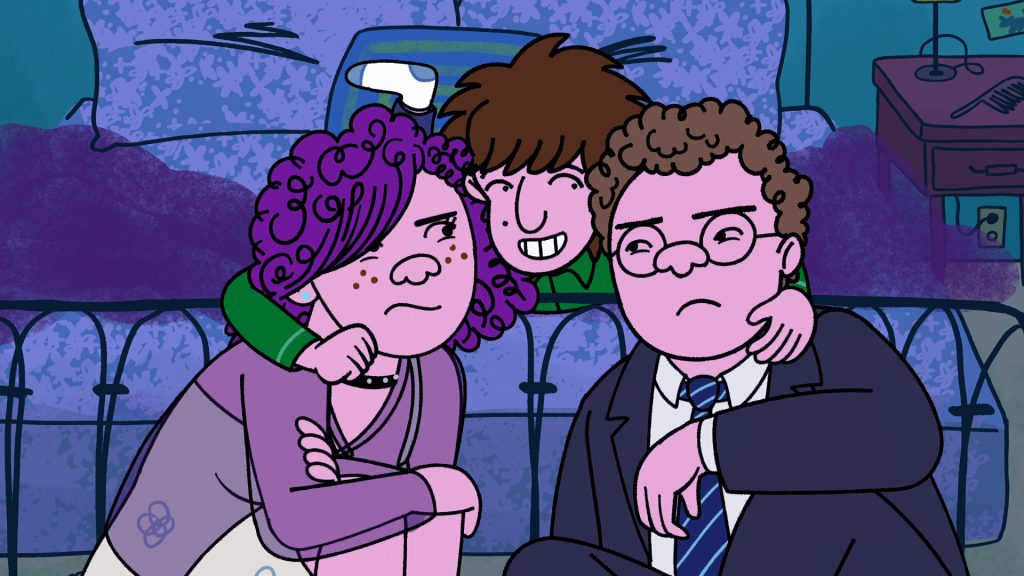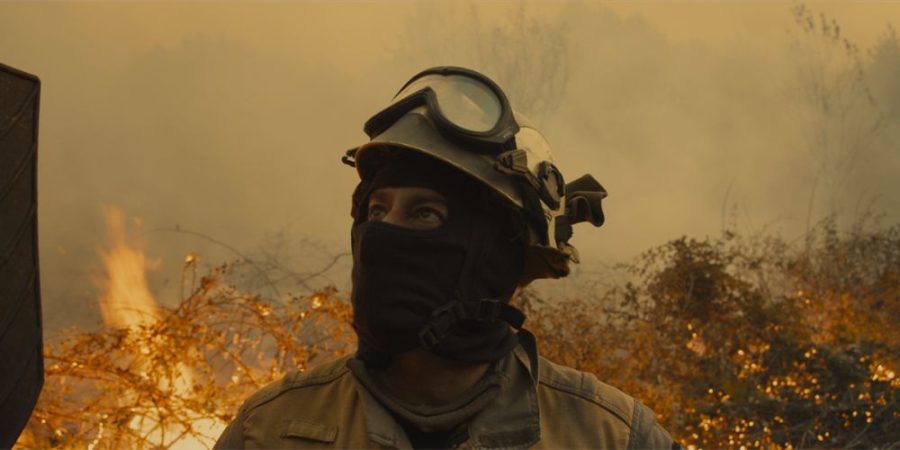“If ends are encoded in every beginning, we wonder, then what is the point?” Raphael Bob-Waksberg wrote in his 2019 published book Someone Who Will Love You in All Your Damaged Glory. The quote reads with the same sly cynicism and mellow sentimentality his debut series Bojack Horseman and follow-up, Undone, wherein his protagonists' actions are always narrowly described by actions that took place before, and were explained after.
Upon the release of his latest series, Long Story Short, an experimental animated sitcom that bounces backwards and forwards through time, the quote takes on a whole new meaning and contorts time into the unifying theme to be able to successfully break down Bob-Waksberg's work. To coincide with the series streaming debut, FILMHOUNDS spoke to Bob-Waksberg about memory, similarities to King of the Hill and how the world affects us and our storytelling.
In your book, ‘Someone Who Will Love You in All Your Damaged Glory', you experiment with form within the book – telling stories through poems, board games, etc. When making a show like Long Story Short, which similarly breaks rules, how do you remain mindful of the story and the emotions?
That was really fun for me. It was always an exciting way in. But it's the way in, not all of it. When I was writing my book, it was important to me that every story justified its format in some way. That was true on this show, too. It was important for me to feel like there was a metaphor that justified why we were jumping around in time. For me, I really thought about memory. This is not necessarily a show that is told through memories, right? The idea that, when you're thinking about family, when you're having memories, they do kind of bounce around, and something might lead you to something else. I wanted the show to feel like the experience of flipping through an old photo album, where the photos are not necessarily always in order.
You mention in an interview with The Hollywood Reporter at Annecy that you were “thinking of [Richard Linklater's film] Boyhood.” What did you take from Boyhood and bring into Long Story Short?
One of the things I love about Boyhood, which I definitely took through the show, is that it isn't necessarily interested in the milestones. It's about popping in on these ‘moments', and I wanted that to be true of our show as well. Hopefully we'll go many seasons – maybe we'll be able to hit all the weddings and all the firsts – but at least in this first season, I like the idea of skipping over some of the more important moments, to kind of hone in on some of these smaller family moments.
How did you find re-teaming with Lisa Hanawalt?
We were very deliberate that we didn't want it to look like Bojack [Horseman]. It was very deliberate to make it feel like its own world, and I know she was thoughtful about how she wanted to do that. It was an opportunity to try some different stuff in the look of it, but also in the writing tonally, it's a little different. I think all artists like to stretch their legs a little bit and not feel like they're doing the same thing over-and-over-again. Because it's me, and because it's her, we felt like there would be a continuity of voice, so if you like our other work, you will probably like this as well. We had confidence in that, and that confidence allowed us to maybe take bigger swings in opposite directions and trust that our inner Raphael-ness and inner Lisa-Ness would provide the continuity that fans might expect.
Long Story Short, similar to King of the Hill, resembles a realist storytelling style more than Rick and Morty, Family Guy, etc. Can you comment on that design in prose?
I think what's interesting about that observation is that I think both King of the Hill and Long Story Short, have some very cartoony moments! But because the expectation for animation is so different by comparison, they seem very grounded and real, right? I've heard this before, and I don't begrudge it, because that was the intention. I think we wanted it to feel more grounded, and we wanted it to feel more like a live-action show in tone. What's nice about that is we can still do some of the cartoony stuff. There is an elasticity to the universe that maybe would jar you on Everybody Loves Raymond, for example, but because it's a cartoon, you go with it.
Long Story Shot, by way of its structure, is presented as a series of beginnings. In this way, how do you land on a quieter finale, such as “Uncle Barry.”
I've always kind of had an interest in the season finales feeling more like a coda than a climax, and I think that's true here as well. One of the challenges for me on this show was that it was a new way of thinking about storytelling, and that, because it was non-linear storytelling, it was less about the events and more about the emotional arcs of the characters, or even more, the emotional arc of the viewer.
You've mentioned The Simpsons as an inspiration, and specifically how you are drawn to episodes where the emotions were central. How does writing a show that skews closer to The Simpsons, surrounding a family, differ from writing a Hollywood satire?
It's different. One of the things I was really drawn to is the idea that these characters really know each other, and the appeal of Los Angeles is that in Southern California, there is no history. Everything is fresh. Everybody is starting over. Everybody is young. This is kind of the opposite in that way, and we can draw on these things. I wanted this family to have a shared language, share rhythms and inside jokes. I wanted to approach them almost like we're a little on the outside of it. But by nature of getting to live their lives with them, we become on the inside of it. The ways that they can call back to their shared history and the small tensions that become rifts, or small fights that become traumas, I thought was really interesting.
In focusing on the smaller moments and forgoing the bigger moments, do you still have those moments in mind? How much do you know about these characters?
We know a fair amount, but we don't know anything until the show is made. We have documents where we've tracked out when all the characters' birthdays are, what years they were born and when they got married. The sorts of things that are helpful for storytelling and making sure the logic is consistent on the show. But until something is established on the show itself, it's not true. I'm very open to surprising myself and being surprised.
How did you navigate a family dynamic with a religious component?
One thing about religion and identity is the way that our conception of ourselves shifts over time. I wanted to tell a story about characters in transition as far as their identities go, and one track that takes is their relationships with religion. Over the course of the season, you see characters push religion away, and you see characters move towards religion because it is not a set thing in our lives, and it is possible to have different relationships with our heritage, with our culture, with our community, and there are different ways to come at it. I like the idea that when you zoom in on any community that, maybe from the outside looks like a block, on the inside, you see all this diversity and all these different approaches and a variety of ways that people identify and think about themselves and approach the world.
Regarding community, there is currently a divide amongst Jewish communities. How do you acknowledge something like that and take that into your writing?
That's an interesting question… I think a lot of it is just kind of intuitive. We are obviously not commenting on any current events on the show explicitly, but I think you can see through the show that we are wrestling with it and having conversations. The world affects us and our storytelling. Yes, I think that is probably a part of the show. I think a lot of my work is intuitive and more art than science. I'm curious to see how people unpack it. I'm curious to see what the reaction is and what people read out of it. But I don't want to be didactic with the show. I'm really excited to see how it bounces off with different people.
Long Story Short is now streaming on Netflix.









